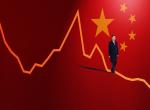The Russian attack on Ukraine raised a lot of questions about the future of Taiwan. The most pertinent questions being will Beijing attack Taiwan and force a military take over of the island, the second being will the United States fulfil its commitment towards safeguarding Taiwan against any military attack from China. The recent statement by the United States President Joe Biden in Japan puts a lot of these questions to rest. Biden said that the United States is committed to safeguard Taiwan militarily while agreeing to the one-China policy. Since becoming President Biden has consistently argued that Washington is ready to get involved to defend Taiwan and will try and prevent a military takeover by Beijing.
As expected, Beijing has not been happy with such statements and has argued that Washington should not support Taiwanese independence. China announced military drills around Taiwan after the statement by President Biden. An article in the Global Times argued that Taiwan does not have the geographical characteristics to become a ‘proxy’ in a war between China and the United States. Beijing has the capability to blockade it. It also asserted that it will be Washington which may get ideas from the ongoing war in Ukraine. The Chinese Foreign Ministry on the other hand asserted that the United States needs to be careful about its stance on Taiwan and that there is no force which can prevent China from reunifying. China Daily in an article argued that the idea of the United States to use Taiwan to ‘contain China is wishful thinking’ and that ‘such action will bring harm to the country itself’. In a media article Chinese Ambassador to the United States Qin Gang argued, “The one-China principle refers to the fact that there is only one China; Taiwan is not a sovereign country, but part of China; and that the government of the People's Republic of China is the sole legal government representing the whole of China.”
The consistent position of Biden towards safeguarding Taiwan does not gain approval in China. Beijing considers Taiwan as its renegade province and the ultimate goal of Chinese Communist Party (CCP) under Xi Jinping is reunification. The only logical goal to achieve ‘national rejuvenation’ and fulfilment of the Chinese Dream is bringing back Taiwan within the mainland’s fold. Any statement of support from the United States is perceived as a hurdle in Chinese path to regain its lost glory and to rectify the humiliations faced during the Century of Humiliation and western imperialism.
On the other hand, the United States under the Taiwan Relations Act of 1979 is bound to help Taipei in defending itself. Thus, no surprises that Washington continues to sell arms and ammunitions and technology to Taipei. In 2019 the United States, State Department had approved a sale of weapons amounting to 2.2 billion dollars. In April 2022, the United States extended a sale of weapons of 95 million dollars. This underscores United States commitment to help Taiwan become capable to defending itself.
These ‘war of words’ is not exactly new when it comes to China and Taiwan. Since Tsai Ing-wen become President in 2016, Beijing has intensified its efforts to isolate Taiwan. China has been consistently wooing away the countries which have diplomatic relations with Taiwan. Only 14 countries have diplomatic relations with Taiwan. Beijing has used its financial clout to diplomatically isolate Taiwan. The recent focus of China in the Pacific Islands has a strong domestic undertone of Taiwan issue. Tsai has been very vocal about the intensification and rise of a distinct Taiwanese identity which is not Chinese, and she had also refused to accept the 1992 Consensus. According to the 1992 Consensus ‘both sides of the Taiwan Straits agree that there is One China, however, they have different interpretations of this One China’. Such arguments go against the Chinese principle of One-China Policy. If the government in Taiwan does not acknowledge 1992 Consensus and promotes the idea that people in Taiwan are not Chinese then it can weaken the Chinese claim of reunifying ‘Chinese people’.
When it comes to Taiwan, the challenges and factors are very complicated and its major roots are not international but domestic. The way the Taiwanese issue pans out has a very strong impact on the domestic legitimacy of the CCP. Reunification and nationalism are major driving forces and support bases for the CCP in a post-ideological scenario. With the outbreak of the war on Ukraine there was an international debate that Beijing may follow suit and try and settle the matter as soon as possible. China has to assert an aggressive stance towards Taiwan as it portrays the CCP being committed to the idea of re-unification. Any statements by the United States of being keen to defend Taiwan is seen as a clear example of Washington meddling in Chinese domestic affairs and also how the international community is ready to deny China its rightful place in the world. Till the time a final solution is achieved to the existing Taiwan issue, it will continue to serve the CCP’s agenda of igniting nationalism and portraying China as the victim of western imperialism.
(The paper is the author’s individual scholastic articulation. The author certifies that the article/paper is original in content, unpublished and it has not been submitted for publication/web upload elsewhere, and that the facts and figures quoted are duly referenced, as needed, and are believed to be correct). (The paper does not necessarily represent the organisational stance... More >>
Image Source: https://ichef.bbci.co.uk/news/976/cpsprodpb/6FF1/production/_120875682_taiwan_china_adiz_map_v3640-2x-nc.png










Post new comment